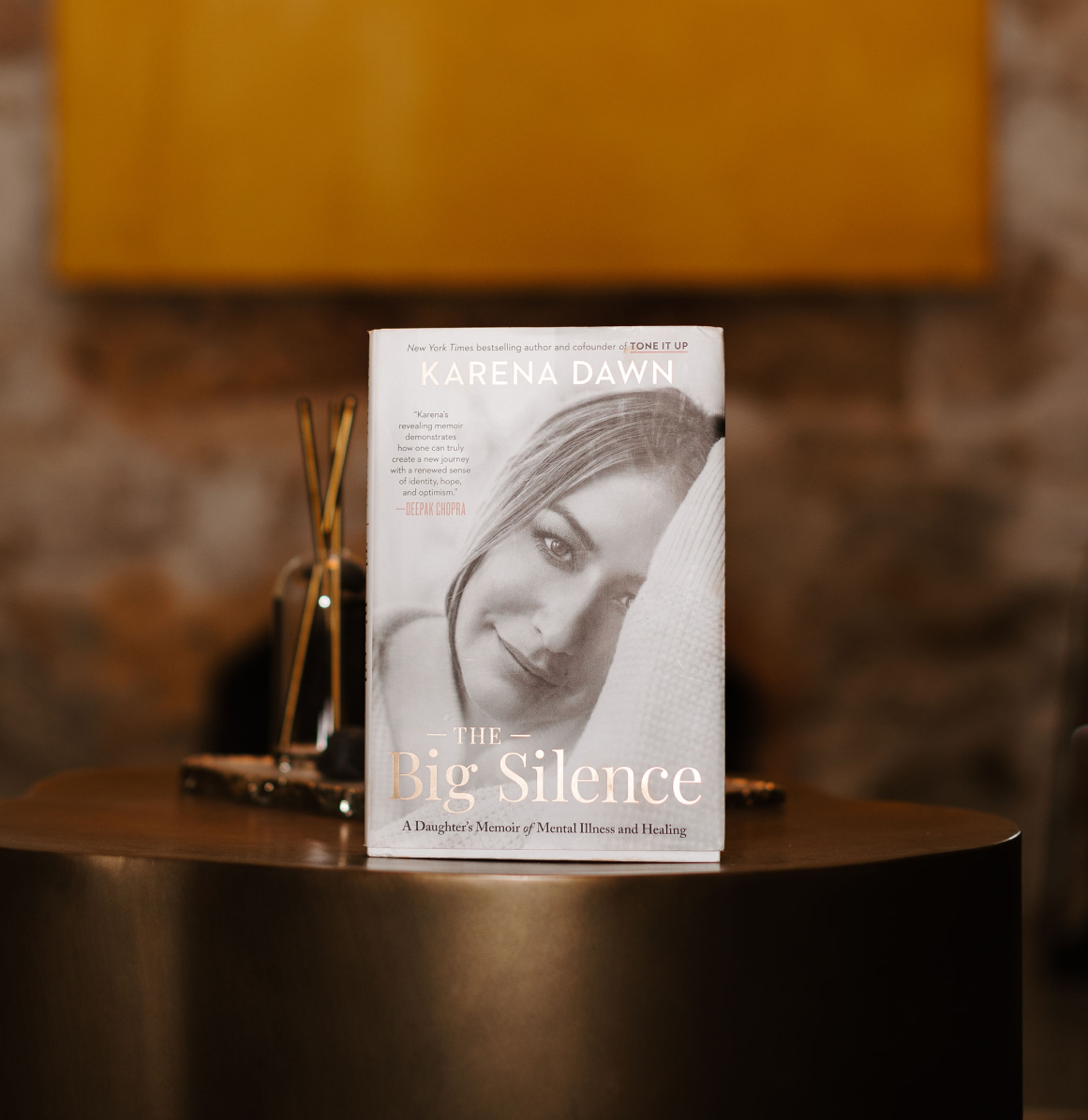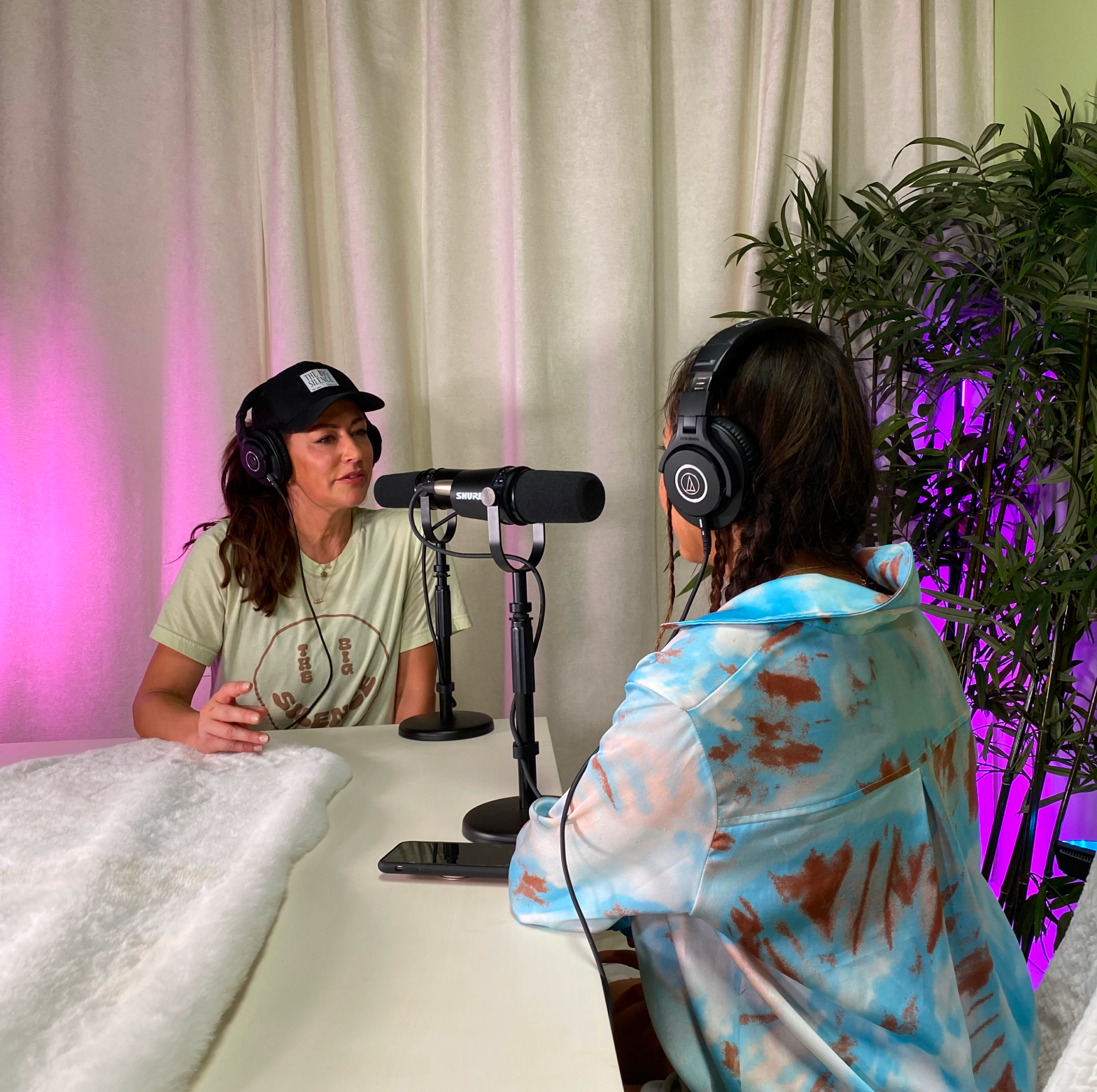Welcome back to Big Feels Monday, a weekly series by The Big Silence where we talk about how we’re feeling, and bring up tools and inspiration to help start the week off. This Big Feels Monday, Karena and James are addressing community questions and bringing tips and advice on how to be proactive about taking care of your mental health.
Finding the Right Therapist for You
If you're struggling with your mental health, finding the right therapist can make a world of difference. In this video, Karena and James talk about one of the most important things you can do for your mental health: finding the right therapist. They discuss why it's important to be comfortable with your therapist and how to know if they are a good fit for you. They also share some tips on how to find a therapist in your area.
From Confronting the Stigma to Starting Therapy
The idea of therapy can be scary and intimidating if you’ve never tried it — especially because there is still a major stigma attached to it. At The Big Silence, our mission is to erase stigma and normalize conversations around mental health, and that includes conversations about therapy! You might be surprised to learn that such a powerful tool for improving your mental health, like therapy, is still affected by stigma. When deciding to start therapy, the belief that starting therapy equates to having something "wrong" with you, or even as a personal failure or incompetence can impede getting started.
In "Nervous to Start Therapy? 11 Things You Should Know" The Big Silence asked several of our therapists from The Big Silence mental health network to weigh in about the stigma that still keeps people from using this life-changing tool. Says licensed marriage and family therapist Sofia Collins, MS, LMFT:
“Even though there’s a growing openness toward the idea of mental health online and on social media, there is a big difference between the idea and the reality. People are more compassionate toward others getting help, but when it’s for themselves, that’s where I see resistance time and time again. People have fear or shame around the idea of personally asking for help, and I don’t think people know what help could look like.”
It's important to know that seeking therapy does not mean that there is something "wrong" with you, and in fact, any time is a good time to start therapy. Therapy doesn't need to feel like a "last resort" in your mental health journey. Therapy helps with anxiety and depression, helps with CPTSD and other mental health conditions, but it is also a journey of self-discovery and self-awareness, and a process to learn new skills to help you cope, empower you to make better decisions and make healthy changes. Therapy can also help you to develop better communication skills, because in the process of therapy you are seen and heard by the therapist.
Meeting resistance to starting something new and intimidating is completely normal. In The 411 on How to Find a Therapist, Karena shares about her own experience of dealing with resistance when starting therapy:
"Every time, I wanted an excuse to turn around and not [go to therapy], but you have to be open, vulnerable, and honest. Then after you leave the session, it's like a weight is lifted off your shoulders. It's important for people to know that you're not going to be so pumped and excited to be driving to your therapist meeting. It's not supposed to be comfortable."
Starting therapy takes us out of our comfort zone, and is an action that can contribute to building up your confidence and self-esteem and improving your mental resilience, as well as your mental health.
#DebbieDaily shares her encouragement for reasons to start counseling and where to find resources to help you. Do the hard thing:
The Best Tips for Starting Therapy
If you are interested in starting therapy, but find yourself confronting resistance or stigma, here are some tips that might help you:
-
Find a therapist who you feel comfortable with.
This is the most important factor in successful therapy. You need to be able to trust your therapist and feel safe talking to them. Many therapists offer free consultations. -
Be open and honest with your therapist.
The more open and honest you are with your therapist, the more they will be able to help you. -
Don't be afraid to ask questions.
If you don't understand something, or if you're not sure what to do, don't be afraid to ask your therapist questions. -
Be patient.
Therapy takes time. It may take several sessions before you start to see results. -
Be kind to yourself.
Starting therapy can be a difficult process. Be patient with yourself and don't give up.
Resources to Help Find a Therapist
The Big Silence resources hub has several suggestions on where to find help for a variety of mental health concerns and issues. The Big Silence also has a program, Therapy for All, a service that seeks to normalize therapy and make 1-1 talk therapy more accessible by providing help to people in need who live in mental health deserts.
Let our sponsor BetterHelp connect you to a therapist who can support you - all from the comfort of your own home. One of the biggest challenges can be finding a therapist that fits your needs and lifestyle. With BetterHelp, you can communicate with your therapist from your phone or computer, with a phone call, video-chat, or messaging. It’s the easiest possible way to start talking to a therapist from the comfort of your home. Whether you’re dealing with stress, anxiety, depression, or just need someone to talk to.Visit https://betterhelp.com/thebigsilence and enjoy a special discount on your first month.If you have any questions about the brand relating to how the therapists are licensed, their privacy policy, or therapist compensation model, check out this FAQ: https://www.betterhelp.com/your-questions-answered/
Psychology Today is a great tool for to exploring therapists in your area and also by condition or topics that you wish to concentrate on in therapy. Anxiety & Depression Association of America also hosts a directory of profiles of various therapist to search by region.
If you have insurance, your provider may offer a list of therapists who are in network. Grow Therapy is a site that allows you to search for therapists in your neighborhood and in your network.
While reading through provider profiles you might find terminology referencing types of therapy that are new or unfamiliar. We have gathered several different types of therapy terms and provide a brief definition in order to help you become more familiar with the words and phrases about therapy that could be intimidating.
Therapy terms and phrases:
- Cognitive-behavioral therapy (CBT): CBT is a type of therapy that helps people to identify and change negative thoughts and behaviors.
- Dialectical behavior therapy (DBT): DBT is a type of therapy that helps people to manage their emotions and relationships.
- Exposure therapy: Exposure therapy helps people to overcome their fears by gradually exposing them to the things they fear.
- Family therapy: Family therapy helps families to improve their communication and relationships.
- Group therapy: Group therapy provides a safe space for people to share their experiences and learn from others.
- Humanistic therapy: Humanistic therapy focuses on helping people to reach their full potential.
- Interpersonal therapy (IPT): IPT is a type of therapy that helps people to improve their relationships.
- Psychodynamic therapy: Psychodynamic therapy helps people to understand their unconscious thoughts and feelings.
- Supportive therapy: Supportive therapy provides a safe space for people to talk about their problems and receive support.
- Trauma-focused therapy: Trauma-focused therapy helps people to process and overcome traumatic experiences.
-
Mindfulness-based Cognitive Therapy (MBCT): MBCT is a modified form of cognitive therapy that incorporates mindfulness practices that include present moment awareness, meditation, and breathing exercises.
What are other types of Therapy?
If starting "Talk Therapy" feels intimidating, there are other types of therapy you could try, too. Poetry therapy, equine therapy, art therapy, somatic therapy, or "Walk and Talk" therapy might appeal to you.
Here are ten types of therapy besides talk therapy:
- Art therapy: Art therapy uses art materials, such as paints, clay, and markers, to help people express their feelings and experiences.
- Music therapy: Music therapy uses music to help people relax, express their emotions, and improve their communication skills.
- Dance movement therapy: Dance movement therapy uses movement and dance to help people express their emotions and improve their body image.
- Drama therapy: Drama therapy uses drama and theater techniques to help people explore their emotions and relationships.
- Play therapy: Play therapy uses play to help children express their feelings and develop their social skills.
- Animal-assisted therapy: Animal-assisted therapy uses animals, such as dogs and horses, to help people reduce stress, improve their mood, and increase their social interaction.
- Adventure therapy: Adventure therapy uses outdoor activities, such as hiking, camping, and rock climbing, to help people build self-confidence and overcome challenges.
- Hypnotherapy: Hypnotherapy uses hypnosis to help people relax, access their subconscious minds, and change their thoughts and behaviors.
- Eye movement desensitization and reprocessing (EMDR): EMDR uses eye movements to help people process traumatic memories and reduce their symptoms.
- Transcranial magnetic stimulation (TMS): TMS uses magnetic pulses to stimulate the brain and improve symptoms of depression and other mental health conditions.
These are just a few of the many types of therapy that are available. If you're considering therapy, talk to your doctor or mental health professional to find the type of therapy that's right for you.
Gabby Bernstein helps us understand EMDR therapy:
Therapy can be a life-changing experience
Therapy can be a life-changing experience. Change doesn't happen over night, and it is important to be patient with yourself and Here are some additional tips that may be helpful:
-
Set realistic goals for therapy.
Don't expect to be cured of all your problems overnight. Therapy is a process, and it takes time to see results. -
Be prepared to work hard.
Therapy requires effort on your part. You will need to be willing to talk about your problems and to make changes in your life. -
Find a support system.
Having a support system of friends and family can be helpful during therapy. This is a time when you need to lean on the people who love you most.
Kati Morton's advice on how to find a therapist for YOU!
Shop our favorites from The Smiley Collection and Start a Conversation
BIG FEELS FEEDBACK
How are you really feeling? We'd love to hear about your week, or share your favorite tools for the week in the comments!
|
The Big Silence Foundation, Inc is a U.S. tax-exempt 501(c)(3) organization dedicated to changing the culture of mental health. Consistent with IRS guidelines, all gifts are tax-deductible to the extent allowable by law. Donate to bring change with us!
|
Start a conversation in your The Big Silence apparel.
The information provided is for educational purposes only, and does not substitute for professional medical advice. Users are advised to consult a medical professional or healthcare provider if they're seeking medical advice, diagnoses, or treatment.
**Please note that if your thoughts start becoming hopeless or suicidal, contact emergency at 988 or 911 andcrisis services immediately. You can find more resourceshere. Text HELLO to 741741 to be connected with a trained crisis counselor.











